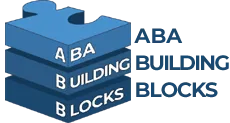Introduction to Revenue Cycle Management Services
Are you grappling with complex financial cycles in your healthcare practice? Trying to strike a balance between delivering utmost patient care and ensuring the financial resilience of your organization can be a daunting task. At the heart of this conundrum are ‘revenue cycle management services’, often the unsung heroes, essential for the smooth operation and growth of healthcare practices like ours at ABA Building Blocks.
Revenue cycle management (RCM) in healthcare is a business process that allows healthcare providers like us to be paid for the services we render. It’s a comprehensive journey that kicks off with patient scheduling and concludes with payment reconciliation. To put it simply, imagine RCM as your trusted navigator through the often complex and evolving landscape of today’s healthcare finance – coordinating patient registration, insurance eligibility verification, coding, billing, and collections.
Crucially, RCM is an artery for operational efficiency and financial success. Financial viability is the lifeline for our ability to provide quality healthcare services. As research from ABA Building Blocks states, without an effective RCM process, healthcare providers may face delayed or reduced payments, leading to financial instability.
The impact of RCM extends into the realm of Applied Behavior Analysis (ABA) and special needs providers. The intricacies of billing, coding, and collections, particularly in the context of insurance, become even more crucial and complex in this specialist environment. Therefore, astute management of revenue cycle has a bearing on the quality of care we are able to deliver to our patients with unique needs.
Before diving into the depths of RCM, let’s familiarize ourselves with some key concepts and statistics:
- Revenue Cycle Management (RCM): It’s the process of managing claims, payments, and revenue generation. It involves patient registration, insurance and benefit verification, charge capture, claims submission, payment posting, and collections.
- Importance of RCM in Healthcare: Effective RCM ensures that patients are appropriately billed for services and that payments are collected promptly. Mismanagement can result in lower patient satisfaction and potentially, financial instability.
- Role of RCM in ABA and Special Needs Providers: With unique billing and coding complexities, effective RCM helps ensure financial stability, enables growth, and allows us to continually provide quality care to special needs patients.

Now, let’s delve deeper and explore each stage of the healthcare revenue cycle, its importance, associated challenges, and potential solutions that can turn these obstacles into opportunities for our practice to thrive.
Understanding the Revenue Cycle
To truly get a grasp of what revenue cycle management services involve, it’s crucial to understand the revenue cycle itself. This cycle is the business process that enables healthcare organizations like ours to receive payment for the services we provide. There are 17 unique steps involved, starting from patient scheduling and ending with payment reconciliation.
The 17 Steps of the Revenue Cycle
These 17 steps can be grouped into three primary phases: Order to Intake, Care to Claim, and Claim to Payment.
- Order to Intake: This phase begins with patient scheduling and registration. It ensures that we have all the necessary information to handle the patient’s care effectively.
- Care to Claim: This phase includes the actual provision of healthcare services, from diagnosis to treatment. Once the services are provided, the details are translated into medical codes to generate a claim.
- Claim to Payment: The final phase involves submitting the generated claim to the patient’s insurance company for payment. It concludes with payment reconciliation, where the payment received is matched against the claim submitted.
These steps ensure that the full interaction with a patient, from initial inquiry through final payment, is effectively managed.
The Role of Patient Interactions in the Revenue Cycle
Patient interactions play a pivotal role in the revenue cycle. We must ensure that appropriate information is collected and documented, patients are only billed for services provided, third-party payers are contacted in a timely manner, and payments are collected.
Mismanagement of these functions can lower patient satisfaction scores and damage our practice’s reputation through avoidable denials and bad debts. Therefore, the efficient handling of these interactions is of utmost importance.
Understanding this cycle and its phases is fundamental to our practice’s financial health. With efficient revenue cycle management services, we can navigate this complex process, ensuring we are adequately compensated for the services we provide, thereby securing the financial viability of our practice and our ability to provide quality care to our patients.
In the next section, we will delve deeper into the challenges that can arise during the revenue cycle process and how to effectively manage them.
Case Study: Successful Implementation of RCM Services
Revenue Cycle Management (RCM) services play a crucial role in streamlining healthcare financial operations and improving cash flow. In this section, we’ll share a real-life example of how adopting RCM services significantly improved a healthcare provider’s financial performance.
How RCM Services Optimized Cash Flow and Streamlined Operations
Implementing RCM services led to a remarkable improvement in the cash flow of a healthcare provider. The services automated billing and collection, which resulted in a reduction in accounts receivable and front-end denials, thus optimizing cash flow. The RCM services also streamlined operations, allowing the healthcare provider to navigate growth and adapt to new reimbursement models at their preferred pace, without needing extra resources.
The Role of Automated Billing and Collection in RCM Services
Automating billing and collection is one of the key features of RCM services. Automated billing eliminates the need for additional billers and training, and collection is automated once claims are processed, which improves payment efficiency and reduces manual efforts. This efficiency frees up valuable time, allowing healthcare providers to prioritize patient care.
The Impact of Accurate and Timely Claim Completion
Accurate and timely claim completion is a critical aspect of efficient RCM services. Healthcare providers who trusted CureMD’s RCM services experienced significant improvements in their revenue and cash flow due to the accuracy and timeliness of claim completion.
The Benefits of Customization in RCM Services
Customization in RCM services allows healthcare providers to tailor the services to their specific needs, ensuring they get the most out of their investment. This includes services like claims submissions, denials management, and more, which can boost revenue, reduce expenses, and improve practice performance.
The Role of AI Algorithms in Automating Tasks and Improving Accuracy
AI algorithms have the potential to automate various tasks such as claims processing, payment posting, and denial management. This not only reduces manual effort but also improves accuracy. Providers can also leverage AI for real-time performance analytics and timely alerts, ensuring no claim is left behind.
Monitoring and Analyzing Revenue Cycle Performance for Data-Driven Decision-Making
By monitoring key performance indicators (KPIs) in your RCM process, you can gain valuable insights into the efficiency of your revenue cycle and identify areas for improvement. RCM services provide a high level of transparency, enabling you to always know how your practice performs financially.
In conclusion, implementing RCM services can significantly improve the financial performance of healthcare providers. At ABA Building Blocks, we’re committed to providing RCM services that meet the unique needs of your practice, ensuring financial viability and allowing you to focus on providing quality care to your patients.
Challenges in Revenue Cycle Management
The revenue cycle is a complex process with many potential pitfalls. Mismanagement of this process can lead to financial instability, patient dissatisfaction, and damage to your organization’s reputation. Let’s explore some of these challenges in detail.
Impact of Mismanagement of the Revenue Cycle
Mismanagement of the revenue cycle can have serious repercussions. For instance, if patients are billed incorrectly or if claims aren’t submitted in a timely manner, it could take months before a bill is paid in full—if at all. This directly affects the financial health of your practice, leading to lower profit margins or even unpaid claims.
Moreover, more than 95 percent of medical practice leaders report inefficient billing processes, indicating a widespread issue that requires immediate attention. Mismanagement can also negatively impact patient satisfaction scores and the reputation of your organization, making it even more important to get this right.
The Risk of Neglecting RCM and Revenue Collection Efforts
Ignoring RCM and revenue collection efforts can halt growth, increase operational risk, and create an uncertain financial future. It’s crucial for healthcare organizations to prioritize their RCM practices to ensure financial resilience.
Challenges in Collecting Payments from Patients
Collecting payments from patients is another significant challenge, especially considering the shift towards direct patient responsibility and the rise in high deductible health plans. InstaMed data from 2020 revealed that patient collection takes more than a month for 74 percent of healthcare providers. This underscores the importance of effective patient communication and the implementation of effective patient payment collection methods.
Coding and Charge Capture Errors
Coding and charge capture errors can lead to claim denials, which impact your revenue. Proper employee education programs can promote correct coding techniques and comprehensive chart documentation to help mitigate these issues.
Compliance with New Policies and Regulations
Staying compliant with ever-changing healthcare regulations can be a daunting task. Recent legislations such as the Affordable Care Act, HIPAA, and the Medicare Access and CHIP Reauthorization Act of 2015 (MACRA) have added complexity to the billing and collections process. Moreover, the No Surprises Act, which came into effect on January 1, 2022, requires providers to adjust their revenue cycle workflows to achieve compliance.
At ABA Building Blocks, we understand these challenges. Our revenue cycle management services are designed to help you navigate through these complexities, ensuring the financial health and sustainability of your practice. In the next section, we’ll discuss solutions to improve your revenue cycle management.
Conclusion: The Future of Revenue Cycle Management Services
As we’ve seen, implementing effective revenue cycle management services can transform the financial health of a healthcare practice. But what does the future hold for RCM?
The Evolution of Healthcare Revenue Cycle Management
Technology is continuously reshaping the landscape of healthcare, and RCM is no exception. The future promises even more advanced tools such as AI and machine learning to further automate and streamline the RCM process. These technologies can help in reducing errors, speeding up the billing process, and ultimately improving the financial performance of healthcare providers.
The Importance of Financial Resiliency in Healthcare Organizations
In the face of an ever-changing healthcare landscape, financial resiliency is crucial. Efficient RCM services can play a critical role in ensuring this resiliency by optimizing revenue collection and reducing the financial risks associated with unpaid claims and uncollected revenue.
The Role of RCM Services in Achieving Financial Excellence
RCM services can help healthcare providers achieve financial excellence by ensuring accurate coding, prompt claim submission, efficient patient collections, and thorough follow-up on unpaid claims. These services, when effectively implemented, can result in improved cash flow, reduced billing errors, and increased patient satisfaction.
The Potential of RCM Services for ABA and Special Needs Providers
For ABA and special needs providers, the complexity of billing processes can be especially challenging. RCM services offer a solution by managing these complexities, allowing providers to focus on delivering quality care. As we at ABA Building Blocks have seen, efficient RCM services can serve as a lifeline, ensuring financial health and enabling us to continue providing the best-quality care to our patients.
The Importance of Quality, Security, and Technology Certifications in RCM Services
Quality, security, and technology certifications in RCM services signify that the provider meets rigorous standards in these areas. These certifications give healthcare providers peace of mind that their RCM processes are in good hands.
Tailoring Pricing Plans to Specific Practice Needs
Finally, it’s important to remember that every practice is unique, with its own set of challenges and needs. That’s why at ABA Building Blocks, we tailor our pricing plans to suit the specific needs of each practice. It’s all part of our commitment to providing RCM services that not only meet but exceed your expectations.
In conclusion, the future of revenue cycle management services is bright, with promising advancements on the horizon. As healthcare providers, embracing these services can help us navigate the complexities of medical billing and ensure our financial health, allowing us to focus on what truly matters – providing quality care to our patients.
Solutions to Improve Revenue Cycle Management
Understanding and effectively managing the revenue cycle is vital for the financial health of healthcare practices. In this section, we’ll discuss multiple solutions that can help streamline your revenue cycle process.
Preventing and Reducing Unpaid Claims
Reducing unpaid claims requires a proactive approach. It’s important to verify the patient’s insurance eligibility during the initial interaction. This includes confirming the patient’s insurance coverage, checking the type of services covered, and getting pre-authorization for certain procedures when necessary.
Moreover, accurate coding and charge capture are essential to prevent claim denials. Regular training and monitoring can help ensure accuracy and compliance, and significantly reduce the rate of unpaid claims.
Improving Point-of-Service Collections
One effective solution for improving point-of-service collections is to provide patients with clear and detailed financial information upfront. This includes the cost of services, the patient’s financial responsibility, and the organization’s payment policies. An informed patient is more likely to make timely payments.
Maintaining Healthy Accounts Receivable
To maintain a healthy accounts receivable, it’s important to have a strong follow-up system in place. This includes timely submission of claims, prompt follow-up on unpaid claims, and efficient resolution of claim denials.
Reducing Inefficient Coding and Billing Processes
Inefficient coding and billing processes can lead to significant revenue loss. Using a comprehensive billing software specifically designed for healthcare practices can help streamline these processes, reduce errors, and improve overall efficiency.
The Role of Technology in Streamlining RCM Processes
Health IT systems and automation play a vital role in refining RCM strategies. These technologies automate common issues in revenue cycle management, such as patient-provider communications, recommending appropriate ICD-10 codes, and monitoring overall medical billing processes.
Providers can also benefit from automating tasks like reminding patients of upcoming appointments and following up with insurers when a claim is denied. This not only saves time and money but also allows healthcare providers to focus more on patient care.
The Potential of Artificial Intelligence in RCM
Artificial Intelligence (AI) brings a new level of efficiency and accuracy to revenue cycle management. AI can analyze heaps of data and help point out why a claim was denied, helping to prevent future denials.
It can also automate various tasks and improve the accuracy of coding and billing, significantly reducing the rate of claim denials. As Joe Polaris, SVP of Product and Technology at R1 RCM, pointed out, AI can evaluate long lists of variables associated with RCM and continually improve the success rate of getting to the right outcome against any of those process steps.
At ABA Building Blocks, we leverage advanced technology and AI to provide efficient and accurate RCM services that help our clients optimize their revenue cycle management. Our dedicated team of experts is committed to helping your practice navigate the complexities of RCM, ensuring your financial health and sustainability.
The Role of Outsourcing in Revenue Cycle Management
Healthcare organizations, including those in the ABA and special needs sector, are facing numerous challenges today. From staying compliant with evolving regulations to managing a complex revenue cycle, these tasks can be overwhelming. This is where outsourcing revenue cycle management services can be a game-changer.
Why Healthcare Organizations are Turning to RCM Outsourcing
Healthcare providers, irrespective of their size, are increasingly recognizing the importance of focusing on their core competence – delivering quality care to patients. Administrative tasks like billing, insurance claims, and payment collections can take significant time and effort away from this central mission.
Moreover, inefficient billing processes and reconciliation efforts can negatively impact the financial health of an organization. As per the research, more than 95 percent of medical practice leaders reported inefficient billing processes, leading many to implement back-end efforts to reconcile bills.
The complexity of the healthcare business model, where services are provided before they are paid for, further necessitates a robust and effective RCM process. Outsourcing RCM allows healthcare providers to leverage the expertise of specialized companies like us at ABA Building Blocks, who have the resources to manage the revenue cycle effectively and efficiently.
The Impact of Changes in Legislation and Regulatory Compliance on RCM Outsourcing
Changes in legislation and regulatory compliance, such as the Affordable Care Act and the Medicare Access and CHIP Reauthorization Act of 2015 (MACRA), have added layers of complexity to the billing and collections process. These changes are pushing the healthcare industry towards value-based care and reimbursement, which necessitates a strong RCM system.
Outsourcing RCM services can help healthcare organizations navigate these changes with ease. At ABA Building Blocks, we stay abreast of the latest laws and regulations, ensuring that our clients’ revenue cycle processes stay compliant and efficient.
The Benefits of RCM Services for ABA and Special Needs Providers
For ABA and special needs providers, outsourcing RCM services can provide several benefits. These include improved cash flow, reduced administrative burden, lower operational risk, and an increased focus on patient care.
By leveraging our RCM services, providers can prevent and reduce unpaid claims, improve point-of-service collections, and maintain healthy accounts receivable. Our dedicated team of experts, backed by advanced technology and AI, ensures accurate and timely claim completion, reducing coding and billing errors.
In conclusion, outsourcing RCM services can be a strategic move for healthcare organizations, particularly those providing ABA and special needs services. At ABA Building Blocks, we’re committed to managing your revenue cycle efficiently, ensuring the financial health and sustainability of your practice.






